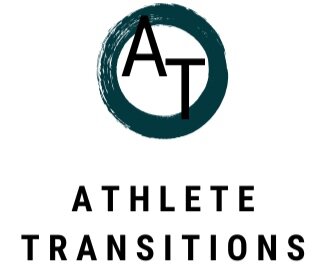
Mentorship and Building a Network
The Benefits of Mentorship
As athletes, when transitioning into retirement, there exists not only a shift in our primary identity, but also a shift in social networks. Due to the highly scheduled nature of being a high-performance athlete, it is common that the primary social network is made up of teammates, coaches, and competitors. As we transition into post-sport life and teammates continue to compete, this shift can create distance in these relationships making them hard to maintain (Lally, 2007). As a result, there is a need to find new support and social networks. It is not uncommon for family and partners to become the primary support network throughout this transition (Brown, Webb, Robinson, & Cotgreave, 2018). Further, as we move into new careers and explore new hobbies, we are able to develop new social networks that provide support and help expand our identities (Lally, 2007)
For some, these new networks may not provide all of the support needed, as these supporters may not be able to fully understand what we are going through. If this is the case for you, finding a mentor or an athlete who has gone through the transition themselves could be beneficial. Having a mentor who was also a high-performance or professional athlete provides someone who has a shared experience and can offer an understanding ear to express one’s feelings.
Mentorship: A relationship established to help provide support and information to someone navigating a new situation. Research demonstrates that athletes who have had access to a former athlete in a mentorship role found the peer support beneficial, as there was a mutual understanding of the retirement experience. This bond created an open and trustworthy connection for the athletes to discuss their challenges and disclose their feelings without fear of them being deemed unworthy (Brown et al., 2018). Likewise, many athletes report that taking on a mentorship role themselves was beneficial in the redefining of their own identities. The process of helping others allowed them to explore parts of their personality they had not previously explored and offered new insights into their own athletic experiences and how they could be utilized in their new post-sport lives (Brown et al., 2018).
Finding a Mentor
Finding a trusted mentor who we can share experiences and feelings with can be incredibly beneficial in the transition to post-sport life. Depending on your sport, you may have access to Alumni Groups that can provide you with a mentor. However, others may need to find a mentor on their own. Teammates or competitors who have retired before us tend to be a good option for mentorship, as they often have shared the same experiences and are able to empathize with what we are going through (Brown et al., 2018).
Establishing a Mentorship
For a mentorship to be successful, both the mentor and the mentee need to be actively engaged and open to creating a space that is safe for both parties. There needs to be space for the sharing of feelings and experiences that lead to opportunities for learning and personal growth (Park, Park, Williams, & Morse, 2017).
References:
Brown, C. J., Webb, T. L., Robinson, M. A., & Cotgreave, R. (2018). Athletes experiences of social support during their transition out of elite sport: An interpretive phenomenological analysis. Psychology of Sport and Exercise,36, 71-80. doi:10.1016/j.psychsport.2018.01.003
Lally, P. (2007). Identity and athletic retirement: A prospective study. Psychology of Sport and Exercise,8(1), 85-99. doi:10.1016/j.psychsport.2006.03.003
Park, J., Park, J., Williams, A., & Morse, A. L. (2017). Exploring the roles of mentoring relationship on female student-athletes’ career development. Journal of Issues in Intercollegiate Athletics, 10, 182–203.




